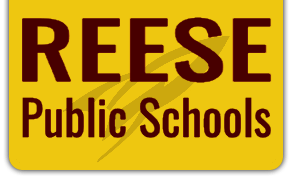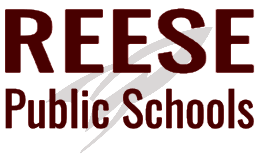SERIES 2000: BYLAWS
2100 Official Description, Purpose, and Board Organization
2101 Roles of the Board and Board Members
A. Role of the Board
The Board has the legal authority and duty to provide public elementary and secondary education in its schools. The Board’s authority is based on state and federal law as set forth in Policy 2201. The Board’s primary role is to:
- Adopt Bylaws and Policies
The Board will concern itself with broad questions about the District’s operation, including the establishment of District goals, objectives, and priorities through the adoption of bylaws and policies. The Board will focus on governance, not management. Policy implementation and administrative details are tasks overseen by the Superintendent, who is responsible for the effective administration and supervision of the District. The Superintendent will apprise the Board about the implementation of its policies and will recommend changes to policies as necessary.
2. Employ and Evaluate a Superintendent
The Board will employ or contract for a Superintendent as its chief executive to whom it will delegate the District’s administration, within Board-approved parameters. The Superintendent does not assume tenure in any administrative position. As the chief administrator for the Board, the Superintendent will implement Board policies and supervise the District’s day-to-day operations. The Superintendent will furnish educational leadership to the Board, District employees, and the community. The Board will annually evaluate the Superintendent in accordance with the Revised School Code. See Policies 4206 and 4603.
3. Employ or Contract with Other Administrators and Supervisors
The Board may employ or contract with other administrators and supervisors, who do not assume tenure in their positions. The Board will prescribe the duties and fix the terms for those administrative positions. See Policies 4206 and 4501.
4. Employ Teachers
The Board will employ teachers through contracts which will be in writing and signed on behalf of the District by The Board may contract for instructional services with third parties as permitted by law. See Policies 4206 and 4401.
5. Employ or Contract with Non-Teaching Professionals
The Board may employ non-teaching professionals. The Board may contract with non-teaching professionals through third parties as permitted by law. The Board will prescribe the duties and fix the terms for those positions. See Policies 4206 and 4401.
6. Employ or Contract with Non-Exempt Staff
The Board may employ non-exempt staff. The Board may contract with non-exempt staff through third parties as permitted by law. The Board will prescribe the duties and fix the terms for those positions. See Policies 4206 and 4301.
7. Adopt and Oversee a Budget
The Board will annually adopt and continually monitor a budget to fund District operations, including District employees, buildings, equipment, and materials which support the District’s educational program. The Superintendent or designee will manage the District’s financial resources and develop a proposed budget for Board approval. Establish and Maintain Grades, Schools, and Departments, and Determine the Curriculum and Courses of Study
The Board will establish and maintain the grades, schools, and departments as it considers appropriate and necessary to support the District’s educational program and determine the curriculum and courses of study to educate the students enrolled in its schools.
8. Evaluate Programs
The Board will evaluate, or cause to be evaluated, the progress and results of the District’s educational programs on a continuing basis. In making those evaluations, the Board will consider the Superintendent’s analysis and recommendations.
9. Act as Decision-Maker
As delineated by applicable legal authority, policy, or collective bargaining agreement, the Board will act as a decision-maker for matters within its jurisdiction for students, employees, and the community.
In fulfilling its duty and role, the Board acts as a body corporate at properly convened meetings held in compliance with the Open Meetings Act. See Policy 2501. A Board decision requires a majority vote of the members elected or appointed to and serving on the Board (unless otherwise expressly required by statute) and as recorded in the Board’s meeting minutes.
B. Role of Board Members
- Individual Board members do not speak on the Board’s behalf without Board approval. Unless authorized, public communications by individual Board members about District matters must clearly indicate that the Board member is not speaking on the Board’s behalf.
- Board members may access information and public records as necessary to perform their duties or as otherwise permitted by law.
- Board members may access sensitive information, including personnel files and student records, if permitted by law and necessary to perform their duties.
- Board members will not disclose privileged or confidential information unless permitted by Board action or applicable law.
Legal authority: MCL 15.261 et seq.; MCL 141.411-.415, 141.436-.451; MCL 380.11a, 380.601, 380.1229, 380.1231, 380.1249b, 380.1250, 380.1277, 380.1282; Tavener v Elk Rapids Rural Agric Sch Dist, 341 Mich 244 (1954)
Date adopted: 08/09/2021
Date revised:


